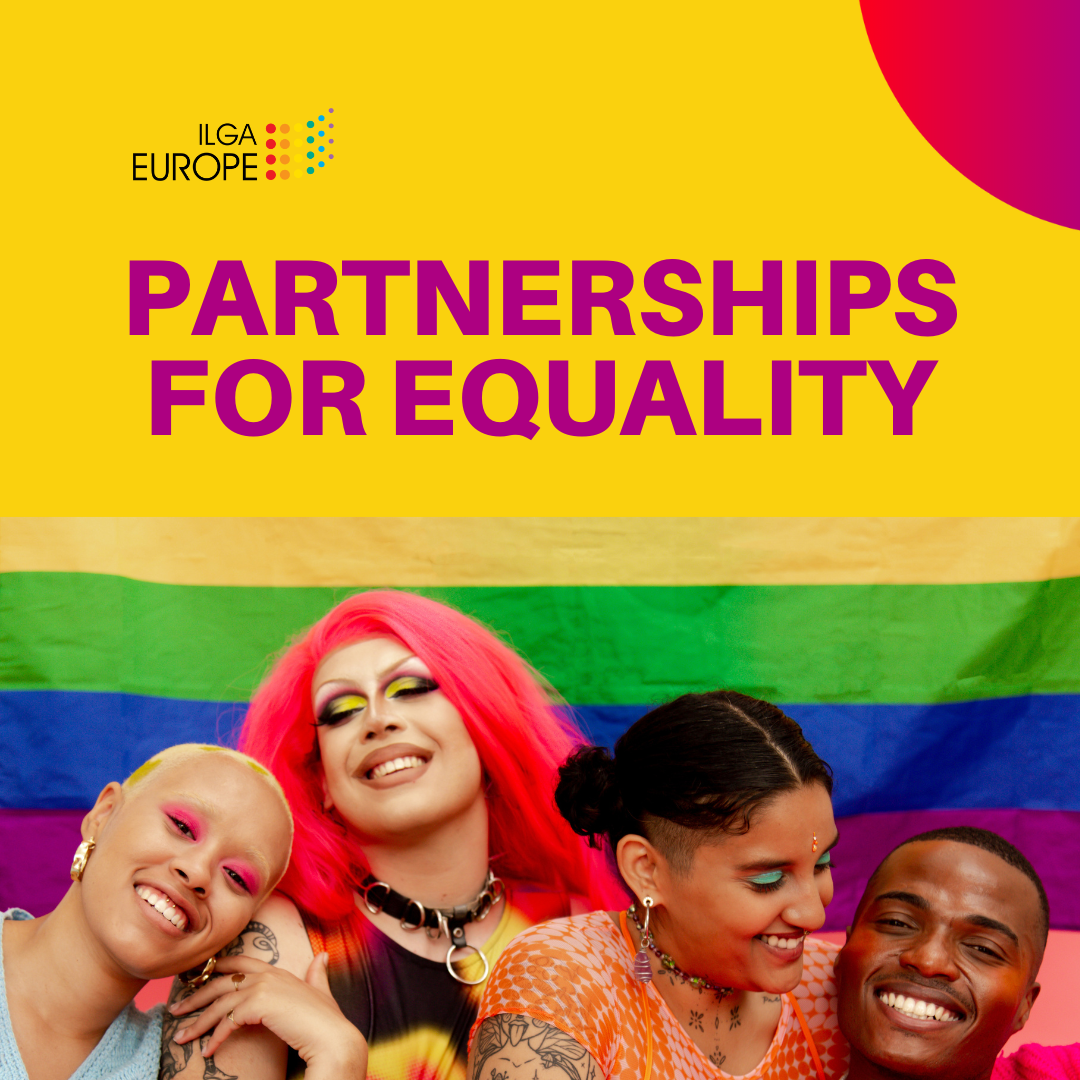Creative ways allies supported us in Pride 2024

As Pride season 2024 comes to a close, we highlight some of the most innovative and impactful initiatives by our allies that have stepped up to support the LGBTI community
Brevo: Celebrating diversity across borders
Brevo, a CRM company, has made a significant impact with its Rainbow Alliance, an internal group formed to foster inclusivity and celebrate diversity. Throughout June, Brevo raised awareness about LGBTI topics across its global offices, culminating in a memorable event featuring Minima Gesté, the iconic French drag queen and Olympic torchbearer.
Minima Gesté hosted a lively drag bingo at the Paris office, showcasing the fun and empowering side of LGBTI culture. This event not only entertained but also educated team members about the struggles faced by LGBTI people. Brevo complemented this with Pride quizzes and decorated its offices in vibrant rainbow colours, reinforcing their message of acceptance and celebration. Furthermore, the company donated to ILGA-Europe, showing its commitment to social justice.
CMS: Ice cream for equality
The law firm CMS also got into the spirit of Pride with an innovative after-work ice creams event. Employees enjoyed delicious treats while contributing to a worthy cause—raising funds for ILGA-Europe. The firm’s commitment to diversity and inclusion was evident as they celebrated the richness of their workforce, welcoming everyone regardless of gender, age, disability, or sexual orientation. Special thanks were given to the team members who organised this delightful initiative, demonstrating how simple acts can have a profound impact.
Qonto: Amplifying impact through donation matching
Qonto, a fintech company, took a strategic approach by matching donations made by its employees. This initiative aimed to amplify the impact of their contributions to the LGBTI community. Qonto’s leadership highlighted the importance of supporting organisations like ILGA-Europe, which operates at a pan-European level. By fostering a culture of inclusivity year-round, Qonto is setting a standard for corporate responsibility in the LGBTI advocacy space.
Eurail: Lunch & learn for awareness
Eurail hosted a “Lunch & Learn” session in Utrecht, providing an opportunity for their team to educate themselves about the current LGBTI rights situation in Europe through the Rainbow Map. The company made a generous donation to ILGA-Europe, aligning with its values of connection and inclusivity. This initiative not only informed employees but also fostered a sense of community and collaboration for a greater cause.
VIA Outlets: Art for awareness
VIA Outlets celebrated Pride Month with its ‘BE PROUD. BE YOU.’ exhibitions, showcasing the work of local artists connected to the LGBTI community. These unique exhibitions, displayed across 11 outlet centres, promoted the stories and experiences of queer individuals. Guests could engage with art and learn about the history of Pride while contributing to ILGA-Europe through donations. The commitment of VIA Outlets to create inclusive spaces for everyone was powerfully articulated by its CEO, Otto Ambagtsheer.
Get Involved!
These initiatives illustrate just a fraction of the many ways organisations, staff teams, and community groups can support ILGA-Europe and the broader LGBTI movement. Every contribution, no matter how small, helps advance equality and acceptance for all.
If you’re inspired by these stories and want to make a difference, we encourage you to explore how you can get involved with ILGA-Europe whether with an initiative with your work team, a community event or a charity livestream. Together, we can create a more inclusive world for the LGBTI community.
Who was at the ILGA-Europe Equality Fundraiser?
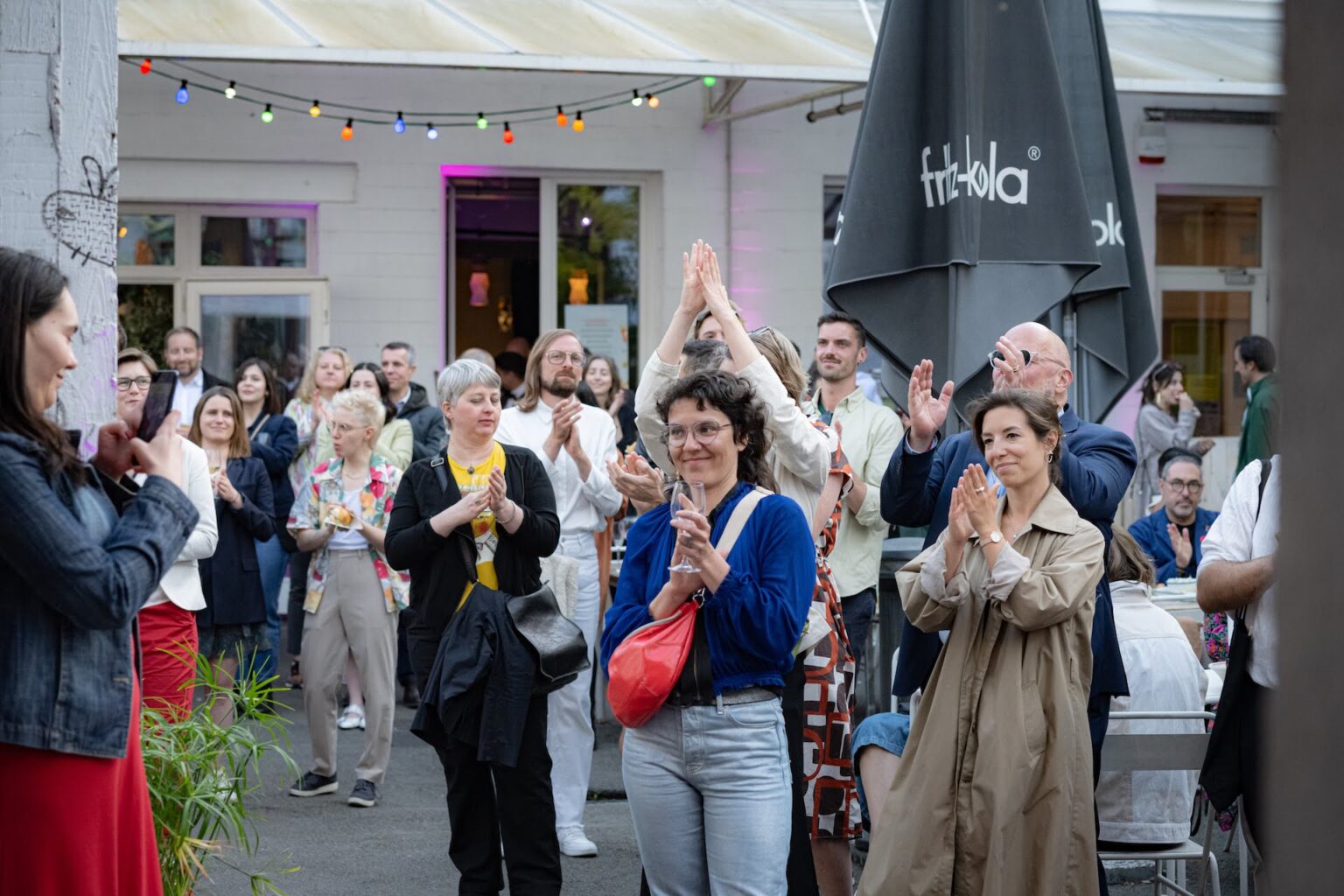
A night of celebration and solidarity brought together a diverse array of supporters committed to advancing LGBTI human rights
On 4 July 2024, Brussels was abuzz with excitement as ILGA-Europe hosted its annual Equality Fundraiser. One of the best parties of the city’s summer season, the event featured an array of special cocktails, sumptuous food, live performance, and dancing with one of the most popular DJ’s on the Brussels queer scene. This gathering wasn’t just a social affair; it was a crucial fundraiser in support of ILGA-Europe’s vital work towards LGBTI freedom and equality. As we celebrated, we were reminded that achieving equality requires collective effort so that everyone can live freely and safely. At the heart of this event were almost 200 diverse supporters and allies committed to the cause, showcasing the strength and unity within our community.
Pro-bono legal support: Cleary
One of the standout supporters of the evening was Veerle Van Hoorebeeck from Cleary, a law firm that has recently partnered with ILGA-Europe to provide pro-bono legal assistance. Veerle expressed Cleary’s desire to make a tangible difference to LGBTI people’s lives through supporting our work, saying: “We love working with ILGA-Europe. We started recently, providing pro-bono lawyers, and we’ll look for more future pro-bono projects with which we can support the work. We feel we can really make a difference that way.”
This partnership highlights the critical role of legal support in advancing LGBTI rights and the impact of professional services in driving social change.
Institutional partnership: DG JUST
From the EU institutions, Susanne Knoefel from the Department for Justice at the European Commission emphasised the importance of collaboration between member states and civil society. “ILGA-Europe is one of our really trusted interlocutors in working together on LGBTI rights, she said. “And it’s all about working hand in hand. So, we work hand-in-hand with member states and with civil society, in particular with ILGA-Europe. I’m here tonight to support, but also to have fun!”
Susanne was one of many guests attending from across European Commission departments, demonstrating support and commitment to working together with LGBTI civil society to strengthen LGBTI rights across Europe.
Corporate ally: Google
Corporate support also played a significant role in the success of the fundraiser. As Steve Loh from Google, long-time headline sponsor of the event, said: “I represent the Pride Chapter at Google, so my idea is to look at how I can help ILGA-Europe in other aspects. We can go beyond just one fundraising event, create a bigger reach, provide a space, and learn from each other. That’s what I’m looking forward to.”
Google’s ongoing support is a great example of how companies across sectors can extend their influence and resources to support the LGBTI equality movement.
Civil society alliances: Mental Health Europe
Margi Marchetti from Mental Health Europe highlighted the intersection of mental health and queerness, addressing the ongoing challenges faced by LGBTI people. “We are going through discrimination, microaggressions, and harassment every day,” they explained. “The way we learn how to cope with it and the way it affects our self-esteem and even our ability to dream about our lives, that’s a big chunk of our identities. It has an impact on our mental health.”
Mental Health Europe was one of several civil society networks attending the event, in a wonderful demonstration of solidarity and building alliances around intersecting issues.
Trade Union solidarity: Rainbow Network of Dutch Trade Union FNV
From the trade union sector, Jolanda Van Gool and Patrick Van der Pas represented the Rainbow Network of the Dutch Trade Union FNV. They stressed the significance of solidarity in their work. “We think solidarity is very important. So that’s why we came to Brussels to show our support for equality and LGBTI rights. We have a rainbow checklist for workers’ rights, that’s where we have the most impact, on the collective bargaining agreements,” said Jolanda.
Patrick added: “We think it’s important to collaborate with other organisations elsewhere, but also with trade unions, just practicing solidarity. We need to stand for the human rights of the workers in the workspace. And put that first instead of business.”
This commitment to LGBTI rights within the workplace highlights the critical role of trade unions in advocating for inclusive and equitable labour practices.
Political representation: MEP Carolina Morace
Newly elected MEP and former footballer from Italy, Carolina Morace, shared her personal connection to the cause. “I am married to a woman for almost ten years and these are my people. I can understand what we went through in our lives. I used to be part of a sports squad and I know how important it is to have a team behind you. I want to be a part of a team here, to represent the rights of everybody. In Europe, some countries are in better situations, while others are in bad situations. In Italy we are in a very bad situation right now. The government doesn’t represent everybody and I think that I can be a voice of people who don’t have a voice in Italy.”
Carolina is one of the 164 elected MEPs who signed ILGA-Europe’s Come Out 4 Europe pledge to protect and advance LGBTI human rights in the new parliament. We look forward to working closely with them all to ensure that LGBTI rights remain high on the political agenda.
A resounding success
The ILGA-Europe Equality Fundraiser was a resounding success, not just in terms of funds raised, but in the solidarity and commitment shown towards our vital work for LGBTI safety, equality and freedom by our diverse supporters. From law firms and EU institutions to private sector companies, civil society groups working on a range of issues, trade unions, and policy-makers, the evening was a testament to the collective effort required to advance LGBTI human rights.
Each supporter, in their unique way, contributes to our shared goal of achieving equality, ensuring that every person can live in freedom and safety. Together, we are stronger, and together, we will continue to fight for a better, more inclusive world. If you weren’t able to come to the fundraiser, you can still support our work by making a donation – and stay tuned for announcements about next year’s event!
The ways we’re working with private companies this Pride season
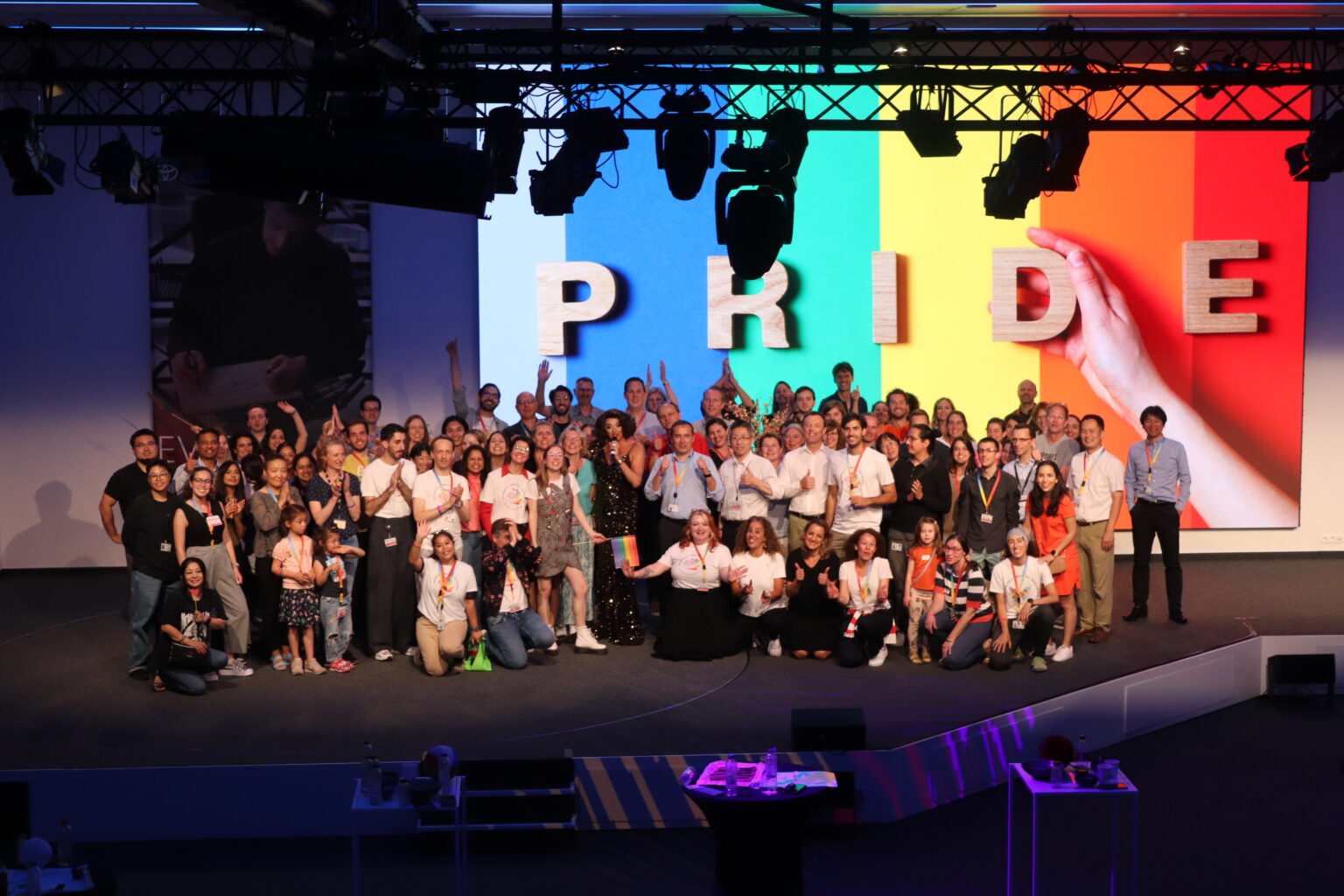
This year, as we do every year, ILGA-Europe have worked with private companies who wish to support our work. But we don’t take every offer that comes our way. Here’s they why, how and what when it comes to partnering with corporates to enhance our vital work with activist organisations across Europe!
Pride season is a time when many companies seek to put LGBTI equality and inclusion front and centre, both internally and externally. It’s also a peak period of corporate support for Prides and other LGBTI groups, including ILGA-Europe. Pride season across Europe continues into September when EuroPride takes place in Malta, so we want to share some highlights of corporate support in 2023 in this blog.
Why do we collaborate with companies?
We are often asked about our collaborations with companies, how we go about them and why. One obvious reason for us to partner with corporates is that it brings vital funding for our work for LGBTI people’s safety, equality and freedom across the European and Central Asian regions. What’s more, this is unrestricted funding, which we can directly regrant to activist organisations in a way that gives LGBTI activists the help they need exactly when they need it, without them having to fill in huge amounts of paperwork that more bureaucratic funders need. This flexibility is particularly important in countries where LGBTI people are at risk.
Beyond funding, private sector partnerships also help raise awareness and bring messages about LGBTI inclusion to different people. As employers, companies contribute to creating inclusive workplaces for LGBTI employees, and in the outside world, they have an impact on the markets in which they operate.
What do we consider before working with a company?
ILGA-Europe’s corporate partnerships are guided by our private sector engagement policy, which sets out principles for working with companies. We look at, for example, the company’s track record on inclusive employment policies, and what it is doing in to foster inclusivity and equality in society. Even if a company still has some way to go, we believe a genuine, demonstrated commitment to advancing rights and inclusion is what matters. This year, as with every year, we have turned down partnership proposals from companies because they were not aligned with our aims or values.
What ways are companies supporting ILGA-Europe this Pride season?
Corporate support can take many different forms, from public-facing Pride campaigns and special edition products to internal awareness raising and tapping into employee giving programmes.
Our collaboration with VIA Outlets this year is a positive example of a brand-new partnership both raising funds and bringing messages of LGBTI equality to new audiences. In words of their CEO Otto Ambagtsheer, the company aims to “create a working and shopping environment that is inclusive and embraces diversity.”
VIA Outlets operates 11 outlet shopping centres in nine countries across Europe, so supporting a pan-European organisation through their Pride campaign made sense to them. For the first time, each centre put on a special Pride exhibition throughout June, showcasing unique shopper bag designs commissioned from local artists and creators connected to the LGBTI community. Visitors could purchase the bags, with proceeds from sales donated to ILGA-Europe.
ILGA-Europe was also pleased to continue collaborating with long-standing partners, including fintech company Revolut, which launched its fifth annual Pride campaign supporting ILGA-Europe. New or existing customers can order a special edition rainbow payment card by making a minimum donation to ILGA-Europe. To show their commitment to LGBTI equality, for every card ordered until the end of July 2023, Revolut will donate £1 to ILGA-Europe, up to £10,000.
Over the past weeks, we’ve had the pleasure of talking to staff teams at a diverse range of companies from easyJet and PayPal to Ipsos, helping to raise awareness about the LGBTI rights situation across Europe as part of their Pride activities. It’s been heartening to see such interest and engagement, with sometimes hundreds of employees tuning in from offices across the region and beyond, asking about what they can do to help.
Several office teams have also put the ‘fun’ into fundraising, with Fourtold’s Brussels office putting on a bake sales, the Toyota Europe team organising a drag show featuring the fabulous LaDiva Live, and the easyJet team taking on dance machine challenges to both have fun with colleagues and raise money for ILGA-Europe.
You can find out more about how companies can support the work of ILGA-Europe on our website, where you can download our ‘partnerships for equality’ information pack and listen to podcast episodes diving into the topic of engaging the private sector for LGBTI equality.
The European Equality Fundraiser 2023: Photo Essay
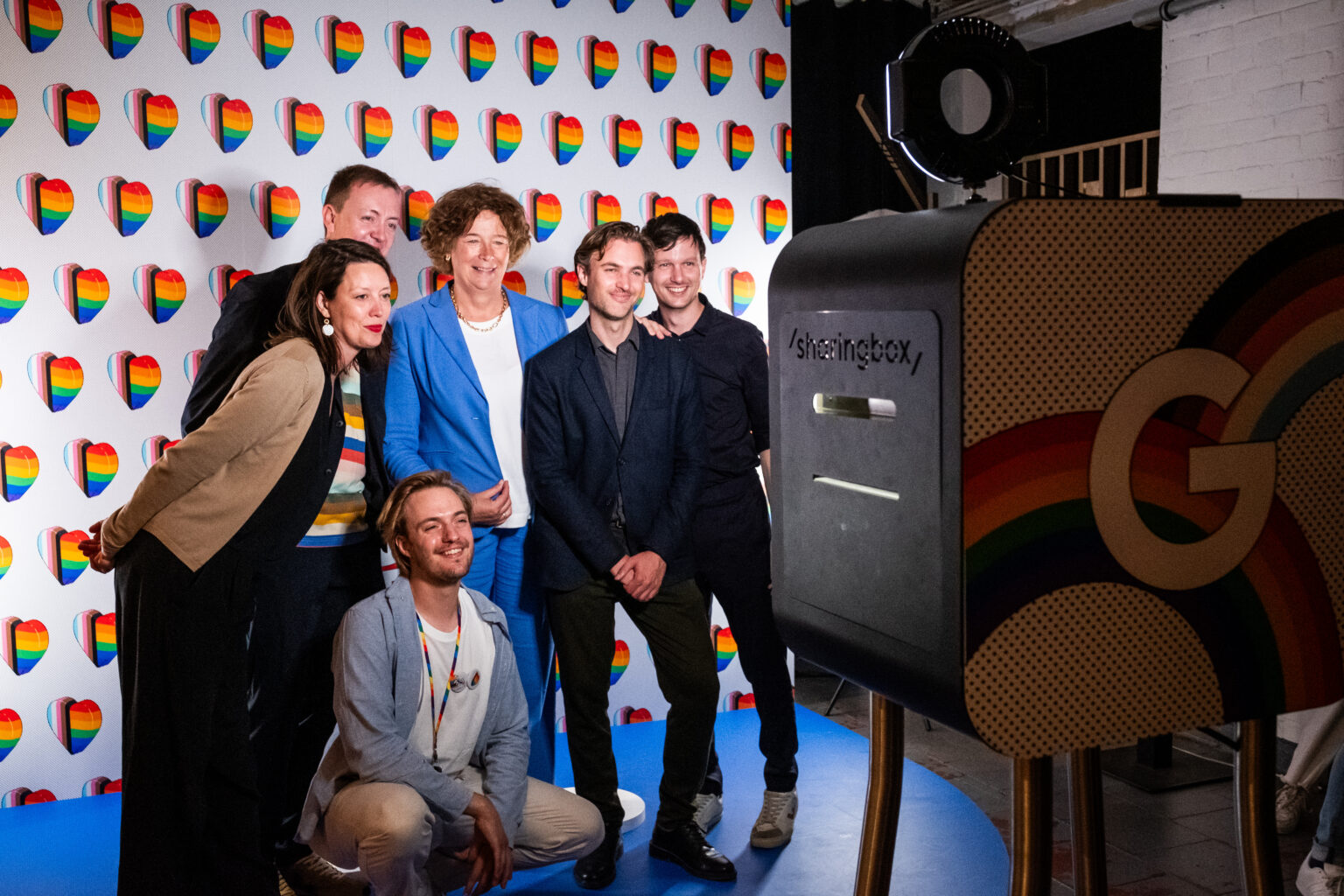
Our Equality Fundraiser on June 29 was an evening of unity, reflection and celebration of the power of activism as over 200 participants gathered in Brussels to support LGBTI rights in Europe and Central Asia. Petra De Sutter, Belgium’s Vice Prime Minister, was the guest of honour. Drag artist Mocca Bonè, the Mow Quartet and DJ Eliana brought the entertainment, and the focus was on how everyone can play their part in ensuring equality amid the current backlash on LGBTI rights and lives.
Achieving and advancing LGBTI rights is the result of sustained work across our societies. As ILGA-Europe’s Executive Director, Evelyne Paradis rightfully pointed out, each one of us has the power to contribute to these efforts by showing up.
“Counteracting backlash and moving onwards towards real social change is deeply collective work,” Evelyne emphasised during her speech at our Equality Fundraiser 2023. “This is not the story of one person or one organisation. It’s the story of how more and more people have shown up over the years.”
We are immensely grateful to the over 200 people who joined us on the special evening of June 29 in Brussels for our annual Equality Fundraiser. These participants came from across EU institutions, civil society organisations, law firms, private companies, and LGBTI activist groups in the region. With so many buying tickets and giving generously on the night, it means we can better support the work of LGBTI activists in Europe, using this unrestricted funding to get money to activists who need it, when they need it, often in regions where there is a backlash on LGBTI lives. By having more people show up, we can better contribute to advancing LGBTI people’s rights in the region.
Building on the success of last year’s fundraiser, we were happy to return to LaVallée as our venue for the second year in a row. Belgium’s Vice Prime Minister, Petra de Sutter opened the evening, honouring some of the brave LGBTI activists she has met and reminding the audience about the importance of European Elections next year. They will be a critical moment when voters will choose whether to continue advancing LGBTI people’s rights or make a “U-turn, back to an unequal and exclusionary society,” she said.
“I know this might sound dramatic, but looking at today’s challenges, I sincerely believe that this is what’s at stake. Because even though progress is being made – think of Estonia which just legalised same-sex marriage – we are, at the same time, hearing increasingly loud dissenting voices from conservative groups, who are against equal rights for LGBTQI+ people,” she added.
Evelyne Paradis acknowledged this trend. “I’ve seen the journey we have been on over the years, and what I understand from that overview is that we are at a turning point,” Paradis said in what was her last speech at our fundraiser, as she will sadly be leaving ILGA-Europe after 18 years this coming September.
“The opposition wasn’t organised in the same way as it was 18 years ago, or even a decade ago. It is now in full force, and it is funded to almost unimaginable levels. It is far from a level playing field.”
With your support, ILGA-Europe can continue its vital work in the face of growing opposition. By showing up at our annual fundraiser you help us to build very much needed flexible funding. This kind of resource allows us to reach places where LGBTI people are at most risk and backlash is fully happening. It allows ILGA-Europe to enable activist organisations to fight back, grow and become stronger.
All photo credits: Ivo Popov.
LGBTI Fundraising Campaigns 101: The 5 crucial elements to raise funds effectively
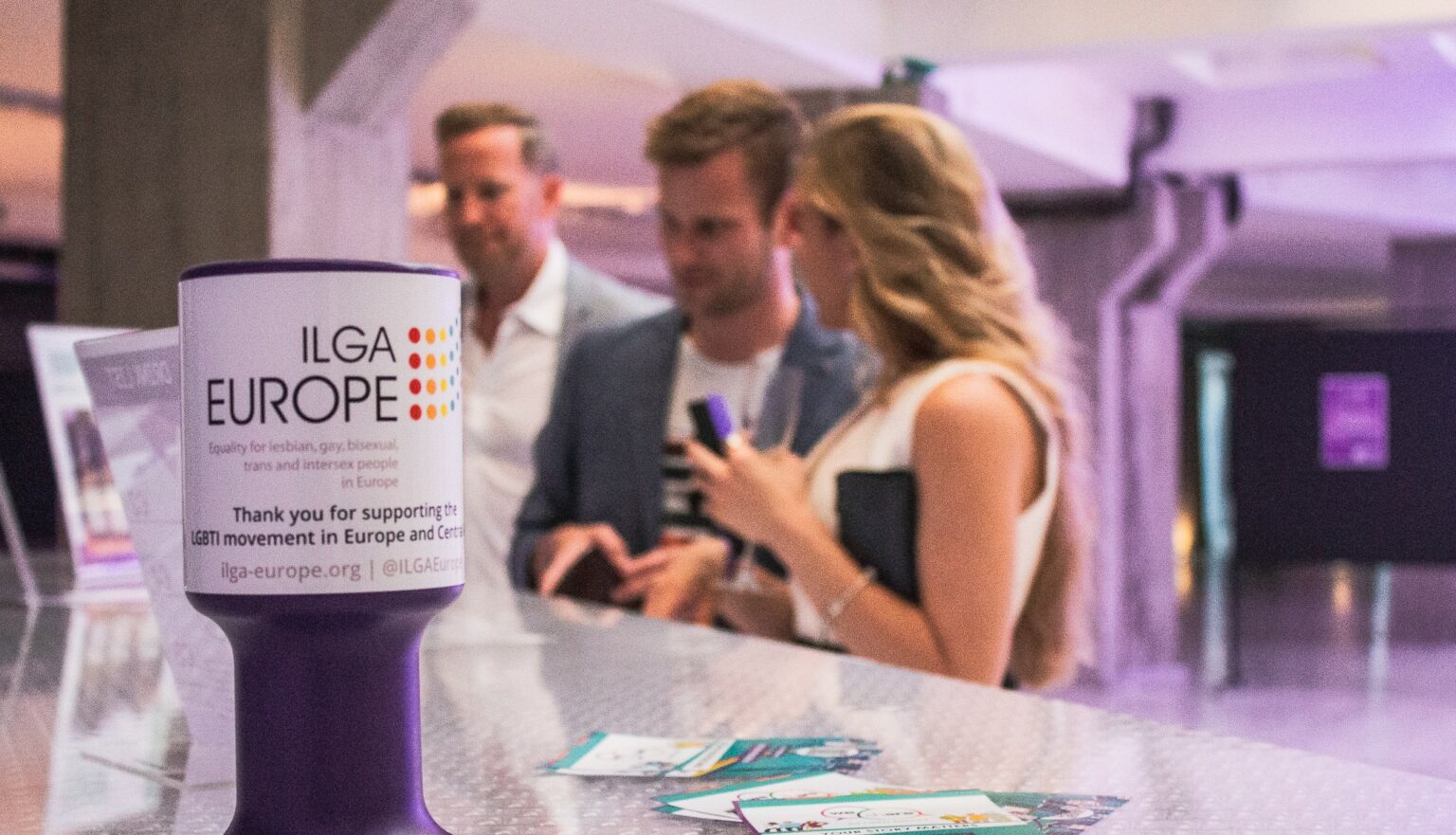
Do you want to start a fundraising campaign for your LGBTI organisation but are unsure of where to begin? We got you. In today’s blog we bring you the main learnings from our latest Skills Boost session, case studies and examples of the work done by participants.
All around the world LGBTI organisations face a lack of resources, particularly funding that can be used for flexible needs. One of the ways to tackle this issue is for activists to start or boost their own fundraising campaigns.
Our latest LGBTI activism Skills Boost session looked at how to create effective fundraising campaigns targeted at individual donors, exploring some good practices and examples. Here’s what our participants learned.
Getting started
One of the most common questions we received from activists is around how to get started: what are the first steps to take if you’ve never done individual donor fundraising before? ILGA-Europe’s fundraising guide for LGBTI activists, It Shows That People Care, provides a practical list of elementary steps.
First, to map your network of potential donors, ask yourself who you know. List categories like past event guests, mailing list subscribers, followers on social media, Pride‑goers, friends and family of staff members, contacts of board members, friendly journalists and politicians, and so on.
Secondly, map your resources. Getting started with fundraising will require some investment, at least time and effort. List the resources, not only money, that you have to work with. Do you have access to a free venue, the support of an artist or performer, contacts at a private sector company, a volunteer with graphic design skills?
And thirdly, work out your elevator pitch. To inspire anyone to donate, practise describing in a concise and simple way why you need money: what is the problem your community faces and how can donors be part of the solution? Make it understandable for people outside of LGBTI activism. Think about how you’d explain your need to your grandmother or a random neighbour.
The power of story
People want to help other people. This is why people respond more strongly to stories than statistics. When asking for money, try to avoid being too abstract. Don’t only describe the issue, but show how it effects real people in your community and how lives can be improved through the support of donors. Tell your story through a character with whom your audience can empathise.
In a well-known study on the impact of story-telling in fundraising involving Save the Children, people who were given the story of one seven-year-old girl and her family facing hunger donated on average double compared to those who were given factual information about food shortages affecting three million people. The fact that people would more likely support one person than three million people shows that people are more likely to support when they can identify with and empathise with another person.
But how can we tell our stories in the LGBTI movement?
In the Skills Boost we looked at some great examples of how LGBTI activists have told their fundraising stories. Last year Prague Pride, raising money to continue a community centre, shared stories of people from the local LGBTI community and what the centre means to them. For example, the story of 17-year-old Adam, who couldn’t be open about his trans identity at home or at school, and for whom the centre was the first safe haven where he felt acceptance. This is also an example of sharing a real story in an anonymised way, which is something you might have to do, so as not to put community members at risk.
Another success story is that of Transgender Network Switzerland (TNS). In December 2021, TNS launched a crowdfunding campaign to raise money for an important court case for legal recognition of non-binary people. The fundraising campaign, rather than focusing on too much legal jargon, featured community members sharing what legal recognition would mean for them, like Miyako, who explained that having the correct gender marker in their documents would have a positive impact on their mental health and make them feel more protected.
Press emotional buttons
Creating a fundraising message is not an easy task. Not only do you want people to stop and take in your message, you want them to be inspired to take the action of donating. People give from the heart, not the head. Empathy, solidarity, joy, outrage or fear are some of the feelings that make people tap on that donate button. You want people to think: “that’s terrible! How can I help?” or “I want to make sure others like me get the help they need” or “I want to be part of this positive change”.
However, in order to do fundraising ethically, we must not victimise people in our communities or sensationalise their circumstances (these are particularly relevant considerations in crisis situations). Be mindful that the stories you tell are ultimately empowering ones. In the Skills Boost we took some inspiration of how LGBTI-themed TV commercials aim to change hearts and minds by pressing emotional triggers, whether through powerful stories, humour or empowering queer joy.
Think about who your audience is – local community members, parents of LGBTI people, diaspora communities, LGBTI communities in other countries – and what story or emotion would move them.
Clear and direct ask
If you have a powerful story to tell packed with an emotional punch, but don’t actually ask for money, you’ll have created a lost opportunity. Don’t forget, or be shy, to include a clear call to action. Supporters want to feel needed and that they are making a difference, so show them how they can be a key part of improving lives for LGBTI people however you are going about doing that.
Testing our messages
Skills Boost participants had the opportunity to receive feedback on fundraising posts they had created for social media. Overcoming Together group from Russia created an Instagram post inviting followers to support by making a purchase in their online store. The post featured cute and appealing graphics of the items available to buy, and explained clearly how support goes towards their work helping helping community members experiencing intimate partner and domestic violence. Queer Svit created social media posts as part of their crowdfunding campaign to help queer and BAME (Black, Asian, and minority ethnic) people in Ukraine get to safety. They used eye-catching graphics, testimonials from people the group has already helped, and compelling figures of how many others could be helped with the campaign’s target amount.
There are often fears around individual donor fundraising, and asking for money can seem like a big step. One of the biggest take-aways from the Skills Boost session was to simply go ahead and give it a try. Finding out what works and what doesn’t is often a process of trial and error, and even if you don’t see big results immediately the steps you take to get started will strengthen your organisation and plant seeds for future fundraising success.
If you didn’t catch the Skills Boost live, you can watch the recording here. You can also have a look at how to make great videos at home, graphics with free tools, and building media relations if you didn’t have the chance to attend previous Skills Boost sessions. Remember that if you are an LGBTI activist in Europe and Central Asia, you can join our private communications support group on Facebook where you can vote for the theme of the next Skills Boost session. And, if you haven’t joined The Hub, ILGA-Europe’s free resource centre yet, do it now! There are plenty of great, practical fundraising resources available there at the click of a button!
Four questions to ask yourself before launching a crisis fundraising campaign
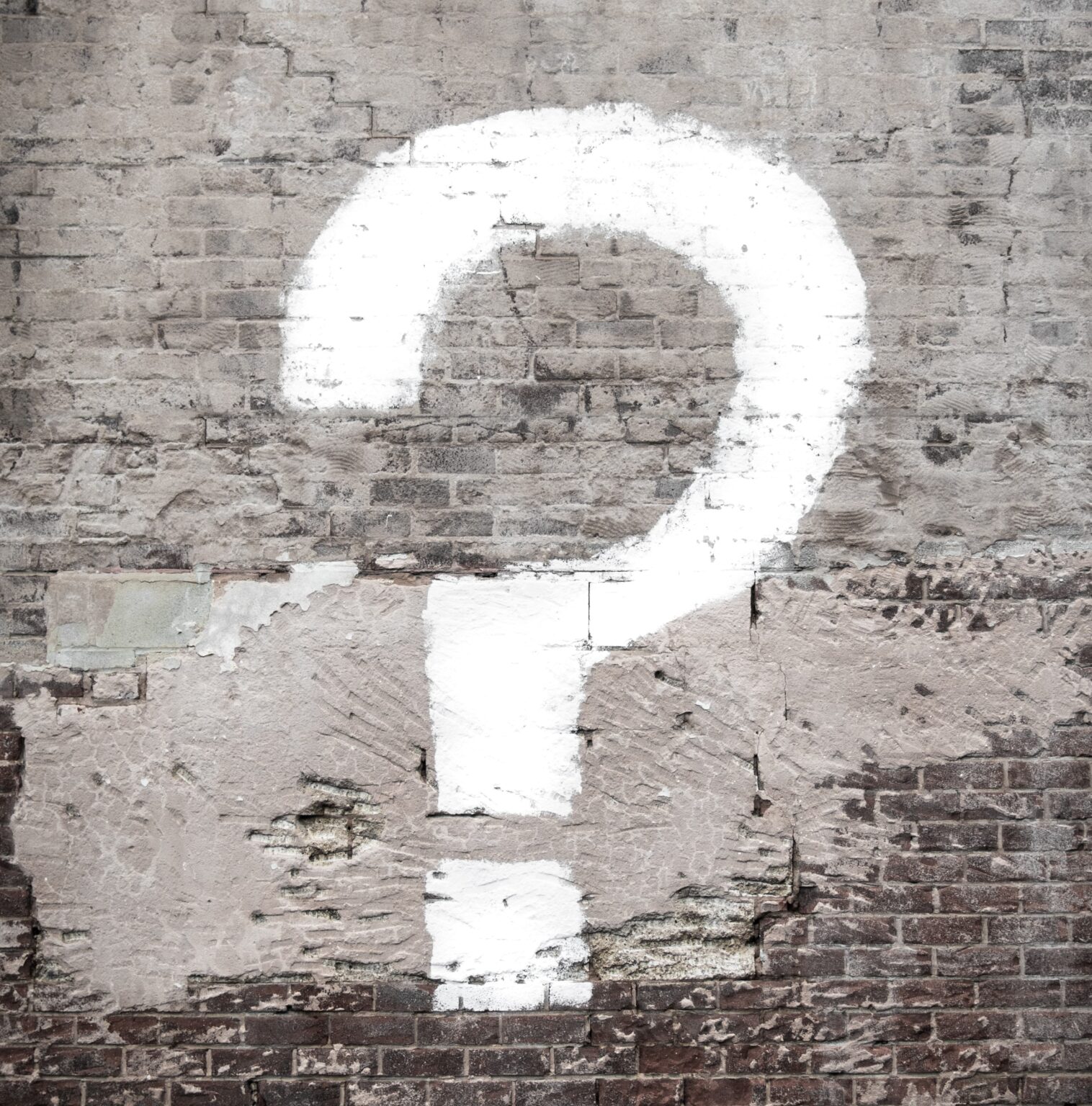
When humanitarian crisis hits, it’s not surprising that people want to help the best way they can. LGBTI activists’ organisations are often at the forefront, often with fundraising campaigns, but sometimes this response can cause more harm than good. Here’s why.
Sadly, the past few years in our world have been marked by major crises, be it the COVID pandemic, war, conflict, natural disasters or violent crackdowns. LGBTI communities are often impacted by crises in specific ways, as we’ve seen in our Annual Review, for example through exclusion and lack of safety in shelters, difficulty in accessing hormones and medications via mainstream humanitarian responses, and being specifically targeted and scapegoated.
During times of emergency, we often see people responding with generosity. Donating is a simple, easy and constructive way of showing solidarity in response to crisis or hostile developments. We saw a wave of generosity in 2017, for example, in response to purge of LGBTI people in Chechnya, or over the past year in support of LGBTI people caught up in the war in Ukraine.
As people ask themselves, ‘How can I help?’, it’s understandable that LGBTI organisations see opportunities to set up fundraising campaigns, whether for their own needs or in support of others. But to raise money responsibly and without causing harm, there are some questions we should ask ourselves beforehand.
Humanitarian organisations with long experience of providing aid can jump into action immediately in the face of any crisis, but for organisations focused primarily on advancing LGBTI people’s rights it’s helpful to pause and think through a few key questions.
Should you be fundraising publicly?
Fundraising can be a constructive response and meet real needs, but it’s not necessarily always the right response. Before going ahead with launching a fundraising campaign on social media and other public platforms, or sharing an appeal of others, ask yourself what your role in this situation should be and whether you have enough information about what kind of support is most helpful in this situation at this moment. Though always well intended, sometimes a fundraising campaign might not be the best response if the attention could potentially put LGBTI communities at risk, or if LGBTI activists in the affected region don’t have the capacity to provide humanitarian support to their communities.
Do you know what the needs are?
If you’re fundraising for your own community, it will of course be easier to assess needs and risks and how you can best use donations. But if you’re fundraising in solidarity with communities in another country, or sharing a fundraiser started by others, it’s especially important to assess LGBTI people specific needs. Is a fundraising ask coming from the local LGBTI movement, and from recognised and trusted groups? Do you know who to speak with to learn about needs?
You’ll need to decide whether you’ll collect funds and disburse them yourself, share a fundraising appeal by other group(s), or invite donations directly to local groups on the ground. Whichever the route, it’s important to consider who is the ultimate recipient of the funds, whether they’re happy for you to fundraise on their behalf, and whether they’re able to handle the funds.
Here, it’s also important to be able to communicate to donors as accurately and clearly as possible, for transparency and trust. Of course, specific needs will not always be clear immediately, but you should be able to give donors a sense of where their money is going, and what happens if needs change or end.
A positive example of communicating about needs is Lambda Warsawa, who set up a successful fundraiser to support LGBTI refugees arriving from Ukraine, conveying both a sense of urgency and outlining concretely how money is spent on activities such as renting a shelter, setting up a support group and preparing sandwiches to hand out to new arrivals at the central railway station.
In Slovenia, eight LGBTI organisations came together to raise funds to support trans people in shelters in Western Ukraine, while COC Netherlands launched a fundraiser in support of LGBTI communities in Ukraine, raising money for local organisations on the ground and providing regular updates about amounts raised and where the money has been sent.
What are the risks?
An LGBTI specific fundraising ask may be perceived as jumping on the bandwagon. At worst it can be seen as profiteering from crisis, leading to backlash. If the decision is to fundraise publicly, how you communicate about needs (as described above) is important in avoiding these risks. If you are raising money in solidarity with others, it’s paramount to consider whether there are risks related to LGBTI groups receiving money and whether publicity could lead to them being targeted.
What’s your message and how will it be perceived?
To avoid risks and to foster trust, how you frame your fundraising message is vital.
While it’s real stories that compel people to give, it’s important not to victimise the beneficiaries you are fundraising for, or sensationalise their circumstances. Instead, give affected community members an active voice, as did LGBT Asylum in Denmark, who asked a former beneficiary of their services to talk about how the organisation had helped him as they prepared to welcome LGBTI refugees from Ukraine. Or the Albert Kennedy Trust in the UK who highlighted stories of young people their services have helped as part of their Winter Pathways emergency fundraising appeal to raise money in response to the cost of living crisis.
Be mindful of how your potential donors will be feeling, and avoid triggering further anxiety or distress, or pressure into giving. For example, in 2020, when Polish organisation Fundusz dla Odmiany set up a successful fundraising campaign in response to violent crackdown on peaceful protests in Warsaw, they took the decision to avoid using images of the consequences of the most severe police violence.
Do you want to know more? Here is some further reading
Fundraising during an Emergency, by Daniel Fluskey, Director of Policy at the UK Chartered Institute of Fundraising
The Fundraising section of ILGA-Europe’s free resource centre, The Hub
It Shows that People Care – LGBTI organisations fundraising from individuals in Europe and Central Asia
SOFII – Crisis Fundraising
Skills boost: Effective fundraising campaigns in times of crisis
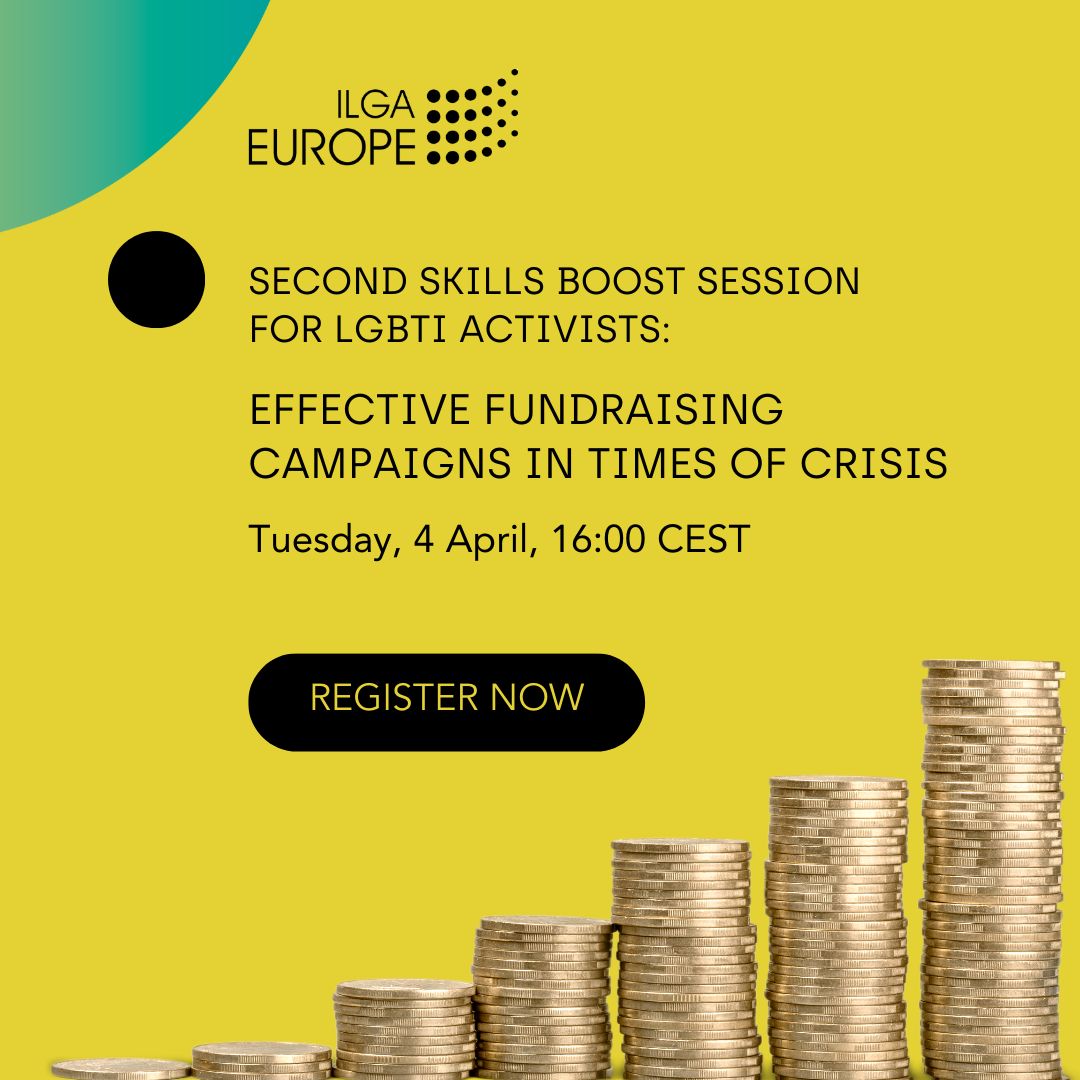
LGBTI organisations face a lack of resources, particularly funding that can be used for flexible needs. One of the ways to tackle this is to start (or to boost) your own fundraising campaign. At this Skills Boost session, ILGA-Europe’s Partnerships Manager, Anna Shepherd provided some tips and advice on where to start, and walked participants through good practices for effective fundraising campaigns targeted at individual donors.
We covered:
- What are the first steps of individual donor fundraising?
- The power of the story you are telling.
- Clear and direct ask as the core.
- Testing messages.
You might want to check other comms resources by ILGA Europe:
- Four questions to ask yourself before launching a crisis fundraising campaign (a blog post): https://www.ilga-europe.org/blog/four-questions-to-ask-yourself-before-launching-a-crisis-fundraising-campaign/
- LGBTI Fundraising Campaigns 101: The 5 crucial elements to raise funds effectively (a blog post): https://www.ilga-europe.org/blog/lgbti-fundraising-campaigns-101/
- It Shows that People Care’, ILGA-Europe’s guide to individual donor fundraising: https://www.ilga-europe.org/report/it-shows-that-people-care/
- Several cards on ILGA-Europe resource hub on different aspect of fundraising: https://hub.ilga-europe.org/fundraising/
Do you struggle with some specific communications challenge, and do not know where to start? Reach out to us, we might be able to help! Contact svetlana@ilga-europe.org
Why our Equality Fundraiser was an essential moment of queer solidarity
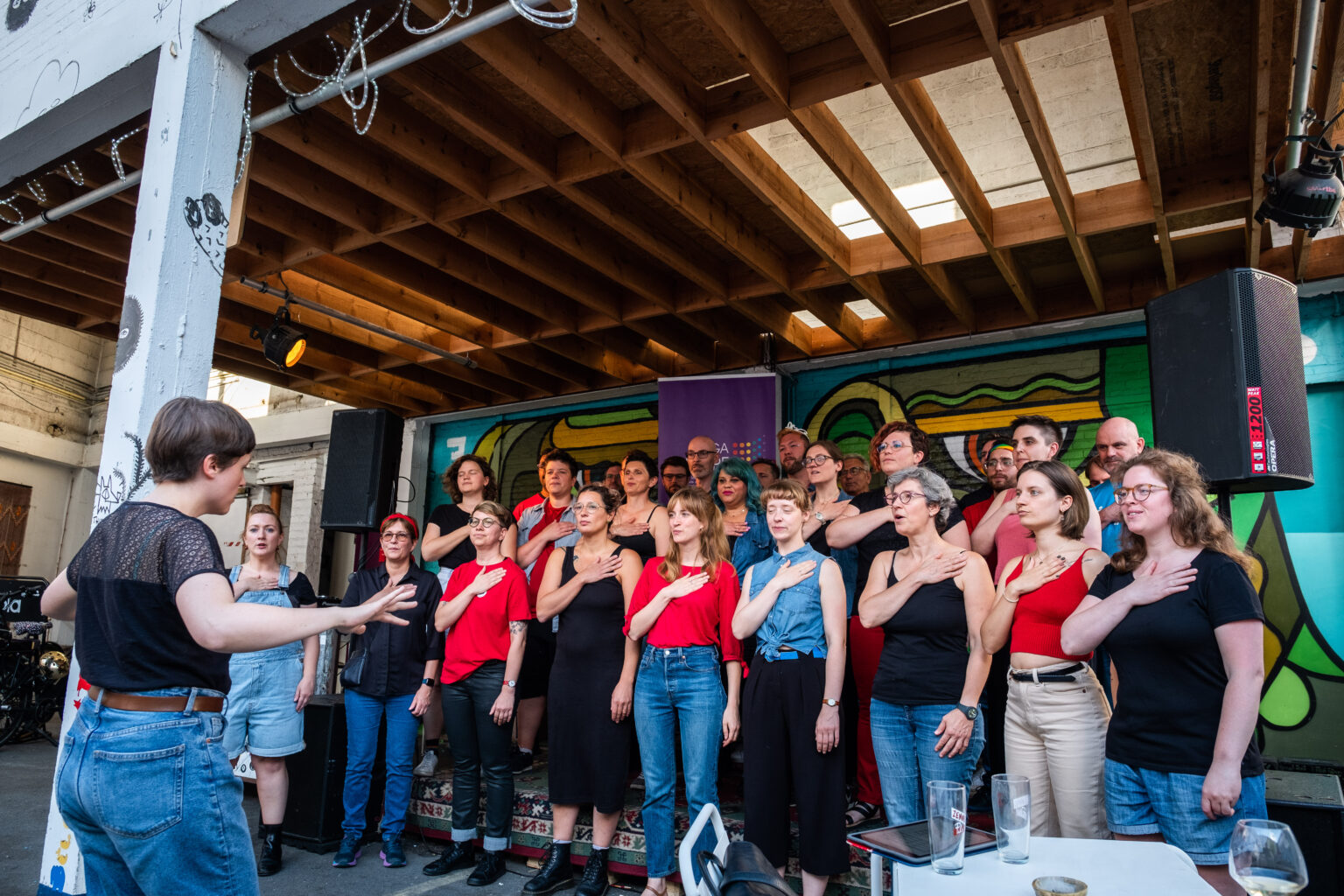
After two years of not being able to be together in person, our friends and allies joined us for an evening of solidarity this year, with all funds raised going directly to organisations helping LGBTI people affected by the war in Ukraine. Here’s why we need support more than ever.
Did you know that the entirety of the budget in the whole world going to LGBTI work from government institutions and foundations is less than what one anti-LGBTI organisation in the United States spends in a year? Often this money is spent to exert influence in Europe and Central Asia.
Hard to believe, right? As our Executive Director, Evelyne Paradis said in her welcome speech at the ILGA-Europe Equality Fundraiser on June 28 in Brussels: “Those who want to see LGBTI rights, gender equality, reproductive rights wiped out are being funded beyond the scope of our imagination.”
While ILGA-Europe works tirelessly in collaboration with and on behalf of organisations across 54 countries in Europe and Central Asia to combat those forces, this year our annual fundraising event was dedicated to fundraising to support the work we are doing with and for LGBTI people impacted by the war in Ukraine. All ticket and bar sales and other funds raised on the evening, will go to directly support organisations in the frontlines.
If you have any experience of living in Brussels, you’ll know that sunny weather can never be guaranteed, even at the height of summer. Luckily, for the evening of our fundraiser, the first in-person event we’ve been able to hold in two years, the sun was well and truly out. Usually known as the European Equality Gala, this year we reinvented the event a little, mindful that while the war continues in Ukraine, it is not a time for huge celebrations. With a comfortable and cool new venue, the dress code was casual, the atmosphere was relaxed and with the support from our sponsors DIAGEO, visit.brussels and Google, we had a proper night of solidarity, complete with entertainment from DJ Melissa Juice and the fabulous queer choir, Sing Out Brussels!.
At the beginning of the war in Ukraine, there was a mass mobilisation of fundraising as well as a great focus from the media. At ILGA-Europe we recognised from the beginning, that the response needed was going to be a marathon, not a sprint. However, media are not so interested in marathons. As news cycles have moved on, so has the focus on the needs of those caught up in the conflict, and the donations aren’t being made in such abundance anymore.
We have continued to work hard ever since to directly support LGBTI people caught up in the conflict, and the organisations that are helping them, while keeping up with our usual work across Europe and Central Asia. We stepped up our support of working for the betterment of LGBTI people in Ukraine and beyond.
Much of this work takes place behind the scenes, for instance:
- We have given 240K in grants to support organisations that are providing shelters, access to basic necessities and medication, psychological support to people in Ukraine and those who have left the country.
- We’ve been working with colleagues in other LGBTI organisations to organise shipments of medications and hormones to trans people in Ukraine.
- We’ve been bringing the needs of LGBTI organisations to the attention of larger funders, mobilise foundations and connecting LGBTI groups to funding opportunities
- We’ve been advocating with EU institutions and governments for the safety, health and wellbeing of LGBTI people caught up in the conflict and those fleeing Ukraine
- We’ve been breaking new ground by working directly with UN agencies on the ground to develop some of the first LGBTI specific guidelines for humanitarian agencies
- We’ve been connecting groups working to support refugees to exchange information and expertise to make sure as many people as possible are taken care of
That’s why moments like the ILGA-Europe Equality Fundraiser are needed. Sadly, recent events like the hate-motivated killing of two people and injury of several others outside a gay bar in Oslo, the mass arrests of participants at Istanbul Pride, and the turn-back on abortion rights in the US, have reminded us that the work for equality is never done.
But, as our Executive Director reminded us on the evening: “Our movement has great power, great resilience, and the ability to stand up for and care for our fellow human beings.”
Let’s continue to do that work together, on behalf of our fellow human beings. A heartfelt thank-you to all people who were at our fundraiser, helping us to continue our vital work, and even if you couldn’t join us, remember you can support our work all year long through our donations page.
Here are some of our favourite moments from the ILGA-Europe Equality Fundraiser 2022:
6 tips for LGBTI organisations partnering alongside a business in Pride season
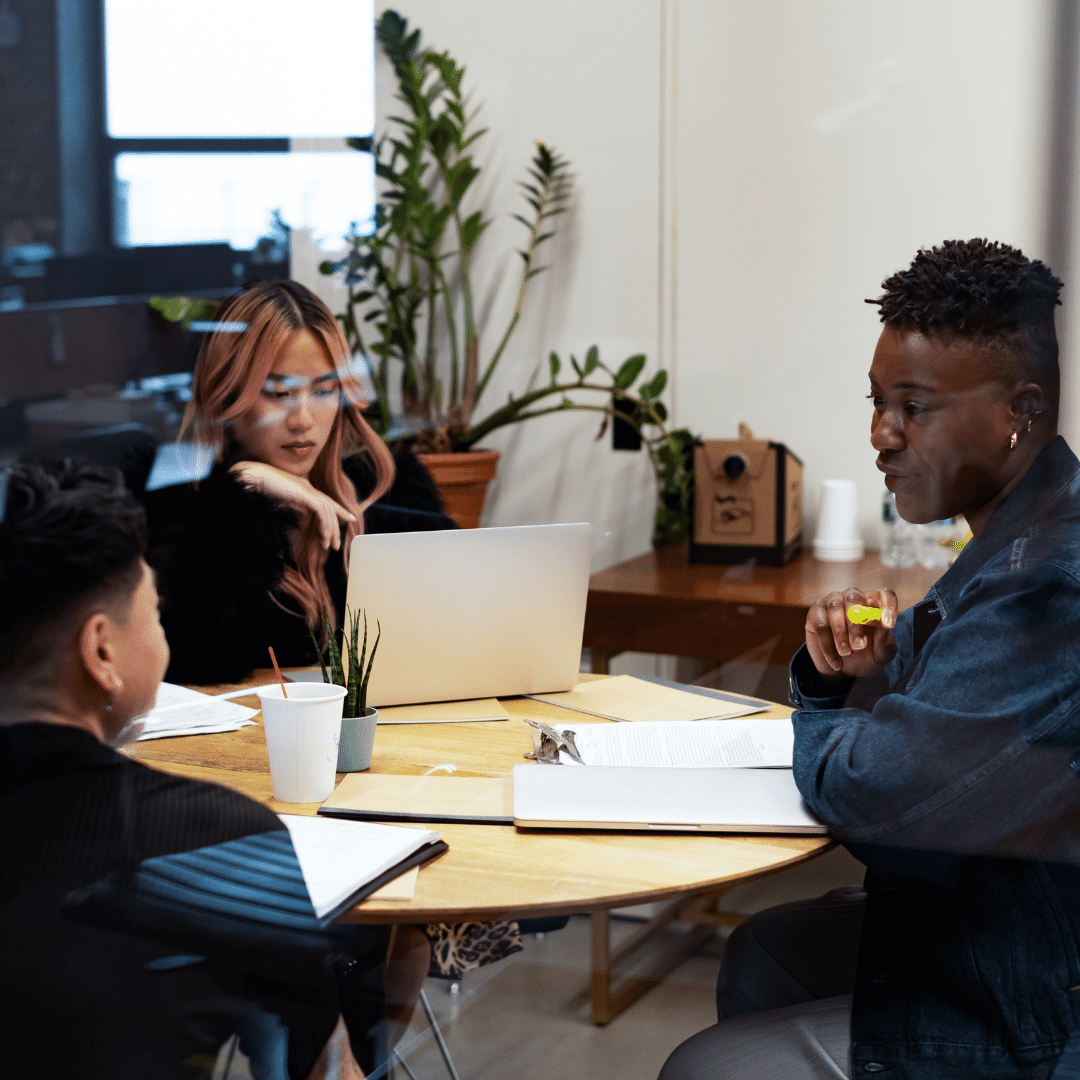
How businesses engage with LGBTI inclusion has changed enormously in the last decade. Today, more businesses actively seek to work together with civil society organisations, while these may find new allies in the private sector. If you are part of an LGBTI group and are considering to collaborate with companies as Pride season kicks off, this blog and our Frontline podcast mini-series are for you.
“We cannot deny the influence of the private sector in our societies,” says Evelyne Paradis, ILGA-Europe’s Executive Director, in our latest Frontline podcast mini-series exploring the challenges and opportunities that come with businesses supporting LGBTI equality. “They have access to power in a way we don’t. We need to build bridges.”
Many businesses are seeing the benefits of LGBTI inclusion both internally and externally, from market reputation to talent attraction and employee motivation. For many LGBTI activists at home with addressing policy-makers and providing services to communities, working with the private sector may be an unknown arena, even raising eyebrows.
However, a partnership can be “incredibly mutually beneficial” for both sides, says Nancy Kelley, Stonewall’s Chief Executive. “Companies can learn how to be better employers, better suppliers to consumers, as well as to be supportive to communities. And for civil society organisations it is an opportunity to access powerful supporters and to access funding they wouldn’t have otherwise.”
Furthermore, companies can reach broader audiences and have an effective impact on public opinion. This is especially relevant when LGBTI rights are at risk. One example is this advertisement campaign in which Mermaids collaborated with Starbucks in which a trans teenager hears their chosen name for the first time at the coffee retailer.
Here are key tips for LGBTI organisations partnering alongside a business that may be particularly useful in Pride season:
1.Before agreeing on a partnership, assess whether your values align and what the motivations of the company are. Find out if they have an authentic approach towards LGBTI equality by looking for key indicators:
- Strong support from leadership in implementing LGBTI inclusive policies and practices in the workplace.
- Supporting LGBTI equality is seen as a long-term, sustained and well-funded effort. A sign of this vision could be training programs on inclusion and diversity.
2. Make a holistic appraisal of your potential partner. Beyond LGBTI equality, look at their approach towards the environment and labour rights, including their supply chain, and any issue that matters to you.
3. Engage with the LGBTI employees of your business partner.
4. Companies can support you in a range of ways. In addition to funding, other resources companies can provide include pro bono support and advice or goods and services in-kind.
5. Be clear about your objectives, what you can and can’t offer, and ensure that the partnership is balanced in term of outcomes.
6. Make sure both parties are clear about the objectives, obligations, deliverables and timeline of the partnership in a written agreement.
Do you want to know more? Stonewall has useful advice for you.
Overview of ILGA-Europe’s finances in 2021
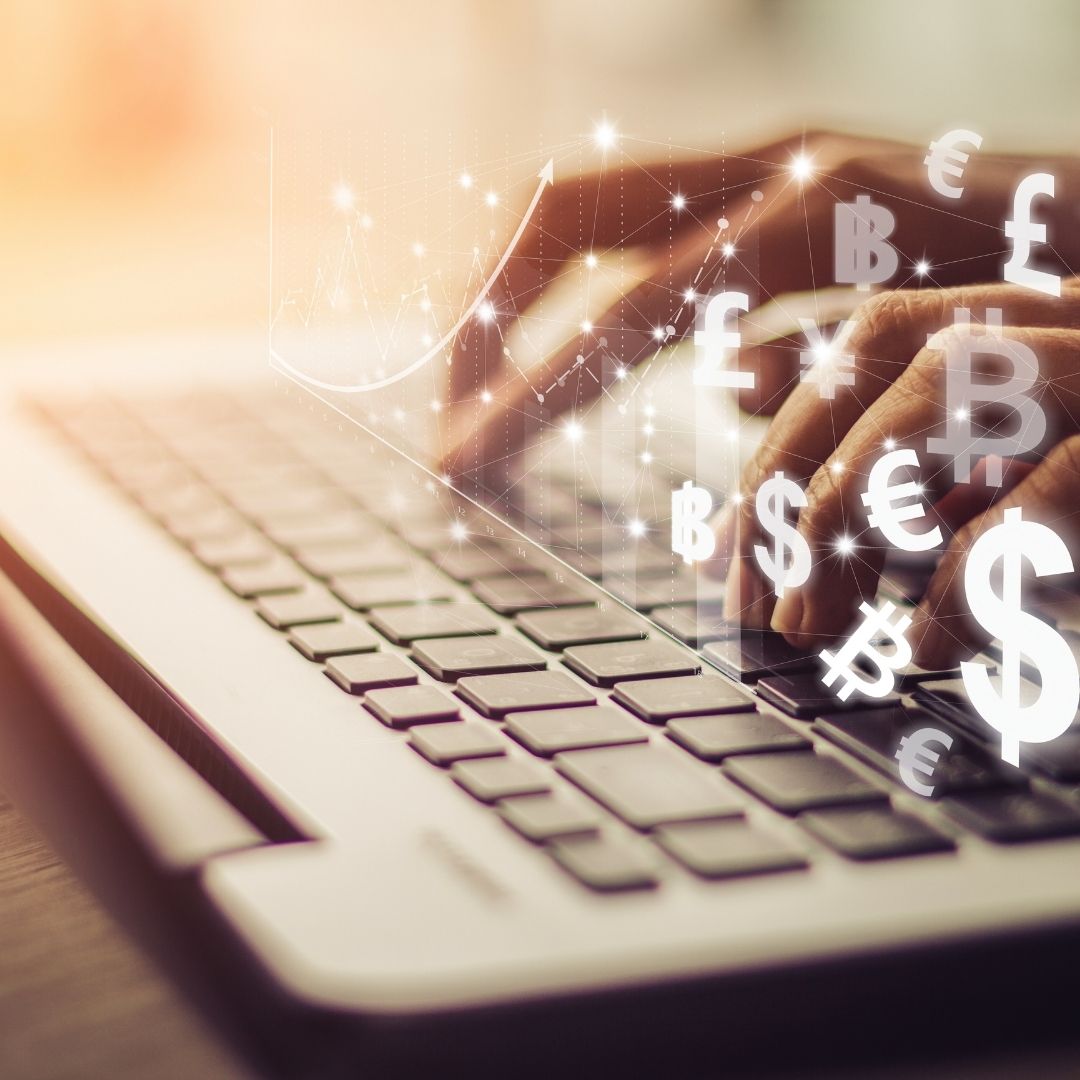
In the financial year 2021 ILGA-Europe obtained and recognised €3,322,339 in revenues, which is approximately a 6% increase from the 2020 revenues. The share of unrestricted funding increased significantly over the past years (reaching over €500k in 2021), while the amount of available core funds was increased or at least maintained through the period. The European Commission operating grant remained at just under €1.2M (incl. 20% co-funding) – slightly less resources were used in 2020 due to COVID-19. The share of project funding, while still high (over €1.3M in 2021), was decreased by over 15% in terms of budget share, allowing for the work to be more tailored and responsive to needs, and for resources to be allocated more flexibly to emerging trends and activities, especially in re-granting.
The total of expenditures registered in financial year 2021 amounted to €3,152,160, outlined in the chart below.
The most significant cost category was ILGA-Europe’s re-granting. Overall, 60 new grants were awarded in 2021, for a total amount of €749,885. While these figures are lower than the new grants issued in 2020, the total number and value of active grants that ILGA-Europe managed within the year 2021 was significantly higher – 139 (for a total of €1,742,102), compared to 115 (for a total of €1,377,403) in 2020. What is important to note, is that as of 2020, when ILGA-Europe began raising sufficient amounts of unrestricted donations and sponsorships to cover activity costs beyond standard budget and co-funding gaps, our own funds have been allocated to re-granting in order to widen the scope of organisations funded. In 2021, nearly €200,000 of our donation funds were used for supporting subgrantees – that is over 25% of our total re-granting budget for the year.
The independent audit of the year was carried out in January 2022 and found no issues. A year-end result of €170,180 was recognised, primarily sourced from unrestricted funds and extraordinary income. With this, ILGA-Europe’s reserves stand at €428,476.
Partnerships for LGBTI equality
The best moments of the European Equality Gala Online
Because we couldn’t gather in Brussels this year for ILGA-Europe’s annual Gala celebration, we decided to hold a virtual event instead. The boost that right-wing forces have been given by the COVID-19 pandemic, along with the enormous impact of the crisis on individuals the LGBTI community, makes the work ILGA-Europe does for profound change through inclusive activism more important than ever. Here’s what happened at our first ever European Equality Gala Online…
As an alternative to our popular annual gathering in Brussels, ILGA-Europe hosted its first Equality Gala Online on June 25. The decision to adapt our yearly fundraising event was not easy, but it also brought a creative opportunity our way. Guests attending from home joined activists in Romania and Poland, European institution representatives Helena Dalli, EU Commissioner for Equality, and Dunja Mijatovi?, Council of Europe Commissioner for Human Rights, a fabulous activist and drag queen from Berlin, and our two elegant hosts live from ILGA-Europe’s office.
We thank all donors who contributed before and on the night fo the Gala itself. Remember you can still contribute to the Gala fundraiser until July 9, helping ILGA-Europe to do our vital work for positive change through inclusive activism at a time when it was never more needed. In the meantime, here are the best moments of the first ever European Equality Gala Online.
At 7pm, LGA-Europe’s Executive Director, Evelyne Paradis kicked off the proceedings. “Many of you have been coming to the Gala since the very first year, and over the years have grown into a family of supporters for the LGBTI movement,” she said. “The COVID-19 pandemic has hit marginalised communities disproportionately hard, and we’re witnessing halted progress, and a rollback of rights and scapegoating of LGBTI people. This is why we feel it is imperative to go ahead with our Equality Gala in this, no less vital format.”
By Evelyne’s side, Robbie Stakelum, coach and policy officer at FEANTSA, and longtime friend and supporter of ILGA-Europe, co-hosted the event. “I know from first hand experience how important the work you do is, and how important tonight is to be able to fundraise for those campaigns,” he said. “I’m delighted to be here.”
Helena Dalli, EU Commissioner for Equality, officially opened the European Equality Gala Online 2020.
“One-in-four European citizens still do not support equality, regardless of a person’s sexual orientation, gender identity or sex characteristics,” she said. “I know the difficulties the LGBTI community are facing are as diverse as the community itself.”
Commissioner Dalli continued with a powerful message: “I want to pay tribute to organisations like you, ILGA-Europe… It is crucial that civil society organisations like yours have a voice in shaping the measures that support you and improve the lives of LGBTI people in Europe.
Commissioner Dalli’s speech was followed by a conversation with Polish activist Miroslawa Makuchwoska of Campaign Against Homophobia (KPH).
On the evening of the Gala, Poland was a few days away from a presidential election, with incumbent Andrzej Duda of the PiS party scapegoating LGBTI people in his campaign. “People are scared and there is more violence,” Miroslawa said of the fallout from Duda’s campaign . “It is not possible to say, ‘I respect people and at the same time I don’t think you are a human being.’ You just make people more vulnerable to violence.” Miroslawa also talked about the rising of people on the streets with rainbow flags, and about how you can support the LGBTI community in Poland. The election run-off, between Duda and his more liberal rival, Warsaw mayor Rafa? Trzaskowski, takes place next Sunday.
Members of the European Parliament spoke out.
“I believe that if we stand together as a community, if we fight together for our rights, then we can really create societies that are based on equality, freedom and diversity.” said MEP Terry Reintke, President of the European Parliament’s LGBTI Intergroup and no stranger to ILGA-Europe’s Equality Gala. Sophie in ‘t Veld, Vice-president, is a regular guest at the Gala also. “I’m very happy that finally the European Commission is ready to work with the European Parliament on an overall strategy for LGBTI rights,” she said, “because that is necessary, because there are homophobic forces on the rise, and that is why we speak out loudly.”
Dunja Mijatovi?, Council of Europe Commissioner for Human Rights, praised the work of grassroots organisations amid the COVID-19 crisis.
“We will need to be organised and resolute to defend human rights… LGBTI NGO’s can help give a voice to victims, you collect data, denounce violations, you speak truth to power and push for progress, and when it comes to this, my voice will always be joining your voice.”
Commissioner Mijatovi?, who also joined us at ILGA-Europe’s Annual Conference last year in Prague, spoke to Evelyne Paradis at the Gala, assessing the impact of the current crisis on minorities. “LGBTI people are among the most vulnerable in this pandemic, because of the discrimination and exclusion they face in general in our societies,” Mijatovi? stated.
A conversation with Romanian activist Teodora Ion-Rotaru of ACCEPT.
ILGA-Europe’s Rainbow Map showed that we are living a critical time for LGBTI equality in Europe, the regression is most visible where civil and political rights are eroded. Romanian activist Teodora Ion Rotaru joined us for a remarkable interview. “The extreme right is taking advantage of the [COVID-19] pandemic to take aim at human rights and trying to dismantle the weak protections that are already there. We just last week saw a bill pass in parliament that is prohibiting discussion about gender, gender equality and trans people across educational environments,” Ion-Rotaru said. She also talked about how organisations like ACCEPT have adapted during the pandemic crisis to help individuals in our communities who are suffering.
Drag artist and YouTuber, Candy Crash talked about the struggles of young LGBTI people in Europe.
Last but not least, drag diva Candy Crash joined us from Germany. “Organisations like ILGA-Europe are working tirelessly on visibility and representation,” she said. “Without these organisations, many queer kids would not have a safe space where they could connect with others outside the Internet…. They would not be seen, they would not feel seen, they would not be heard.
After an hour and a half of eye-opening and important discussion and messages, the Equality Gala Online came to an end. ILGA-Europe would oike to thank all guests for their virtual presence and contributions. You can help us to continue our vital work strengthening and supporting LGBTI activists across Europe and Central Asia at this crucial time by contributing to the Gala fundraiser by July 9. A toast to you!
Revolut launch new rainbow card in partnership with ILGA-Europe
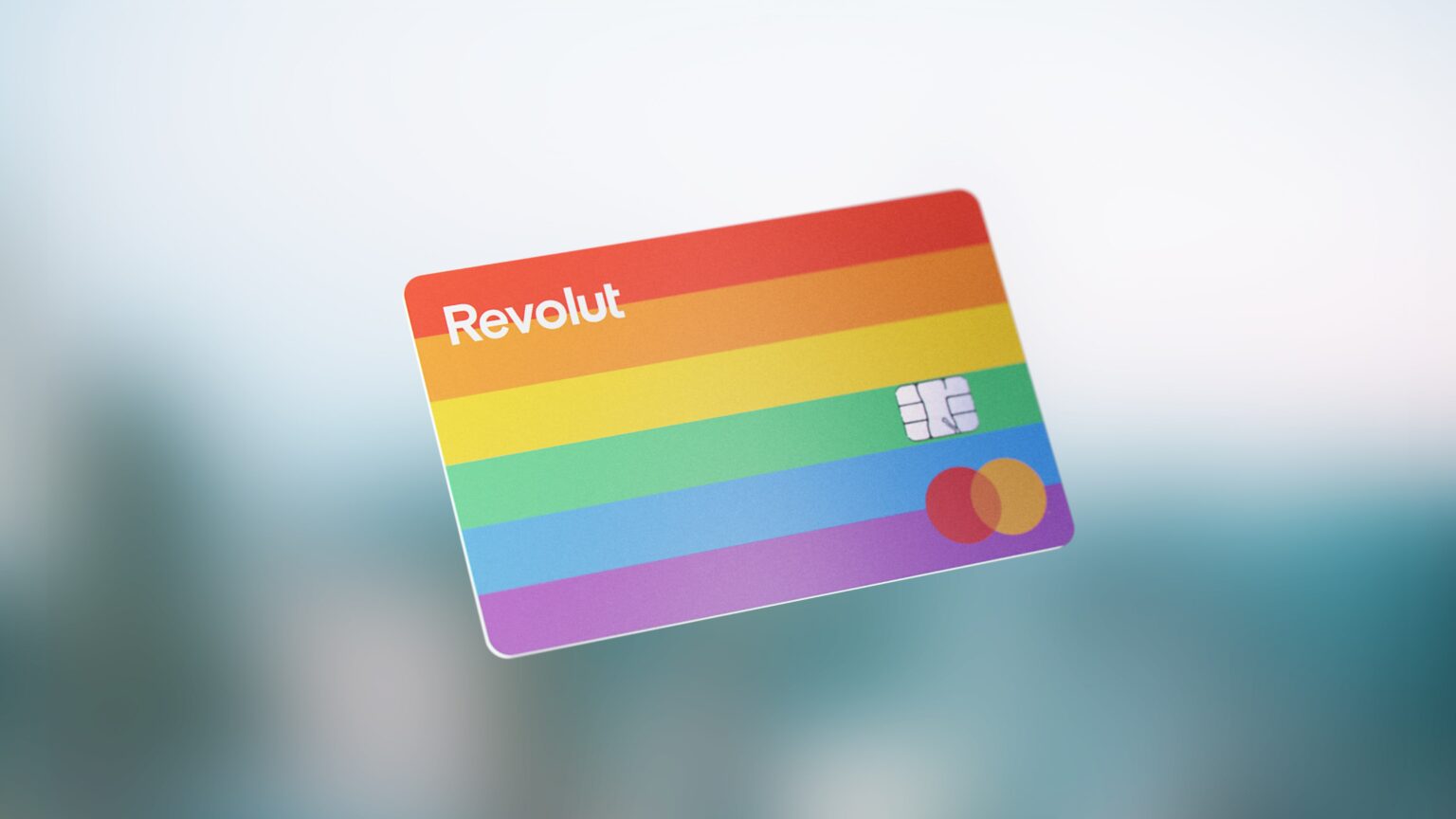
To celebrate Pride season across Europe, Revolut, one of the biggest FinTech communities in the world, has released a new rainbow card for customers in the UK and Europe.
To celebrate Pride season across Europe, Revolut, one of the biggest FinTech communities in the world, has released a new rainbow card for customers in the UK and Europe. Before they can order the new rainbow card, Revolut customers will need to donate a minimum of £3.00 (or currency equivalent) to ILGA-Europe via the Revolut app (to order the card, download the Revolut app and go to Profile > Widgets > Donations > ILGA-Europe).
With the Revolut Donations feature, users can also instantly round-up their card payments and donate the difference, or donate via one-off or recurring payments, all through the app. All proceeds will go directly to ILGA-Europe, with no hidden fees.
Last year, Revolut made 30,000 rainbow cards available to customers in the UK and Europe, which sold out in less than 24 hours. This year, Revolut will make significantly more cards available, and with the minimum donation in place, hopes to raise more than £500,000 for ILGA-Europe.
A Revolut spokesperson said: “Sadly, in recent years, Pride has become a marketing opportunity for a lot of brands, where they talk a lot about how much diversity means to them, but add little or no value to the community. By introducing a minimum donation, we hope to raise over £500,000 for an organisation that is campaigning daily for LGBTI+ human rights.”
Anna Shepherd, Partnerships Manager at ILGA-Europe said: “This is a critical time for lesbian, gay, bisexual, trans and intersex (LGBTI) equality in Europe, where we’re witnessing the stagnation and even regression of rights, made worse by the COVID-19 crisis. Because solidarity with the LGBTI community is more important than ever, we’re thrilled to continue our collaboration with Revolut this Pride season. Support from the Revolut community has a real impact on our vital work strengthening and supporting frontline LGBTI organisations and activists across Europe and Central Asia, and the launch of new rainbow cards will allow us to do even more to support LGBTI communities, advocate for rights, and make profound positive change through inclusive activism.”
COVID-19: Making online fundraising events work for your organisation
As we gear up to bring our annual fundraising event online, ILGA-Europe’s Partnerships Manager, Anna Shepherd gives her top tips for organising online events and bringing supporters on board.
The team at ILGA-Europe started planning our annual fundraising event, the European Equality Gala, way back last autumn. We came up with an exciting new theme, signed a contract with the venue and confirmed sponsors and entertainers. Then COVID-19 hit, and everything changed.
We entered lockdown and it became clear that the situation would last a while, so we needed to take a decision on whether to cancel, postpone or adapt the event. We carried out a thorough risk assessment weighing up different scenarios, financial impact, and our responsibility towards our community of supporters. In the end, we took what now seems like the only right decision to cancel the physical event and organise a virtual event instead. But how to do it?
Our Gala will go ahead on June 25 as planned, but it will be an online event. We’ll be providing our supporters a virtual space to come together, enjoy some entertainment and inspiring speakers, and contribute to strengthening the European LGBTI movement. There won’t be a cocktail bar or dance floor, but we aim to keep as much as the spirit of the Gala as possible.
Now that we’re in full swing planning the ILGA-Europe European Equality Gala Online, we want to share some tips to help your organisation, whether you’re moving a physical fundraising event online or trying out a new online fundraising concept.
Six tips for success
1. Get Your Creative Juices Flowing
Your imagination is the limit when it comes to online fundraising events: you could hold a virtual auction, raffle, quiz, drag show, concert, tutorial etc. Actual fundraising can take the form of tickets sold in advance, a suggested donation to enter, raffle and auction, or asking for donations in the run-up and during the event.
Here are a few inspiring examples of lockdown fundraising from LGBTI groups: German author Saša Staniši? gave an online reading collecting donations for Queerbase, an LGBTI refugee support group in Vienna. Drag artist Deliberately Steve did an interactive show via Zoom asking for donations to international LGBTI fund GiveOut. The Terrence Higgins Trust, a sexual health charity, are holding an online pub quiz to raise money to support people living with HIV. #EurovisionAgain is synchronised viewing of old Eurovision Song Contests every Saturday night, raising money for LGBTI charities in the UK. Diversionary, an LGBT community theatre in San Diego, held a virtual silent auction and raffle.
2. Do Some Savvy Platform Research
There’s no shortage of streaming platforms available, so do your research and choose one that best fits your idea. There’s Facebook and Instagram live; GoToMeetings, Zoom and other webinar platforms; gaming platform Twitch (yes, gaming fundraisers are a thing); and tools specifically designed for fundraising such as Givergy, GoFundMe Charity, jumblebee, GivePenny, Virtual Quiz Events.
Some are free and others come at varying fees, but price shouldn’t be your only criterion: a platform that offers a great user experience and allows easy donations directly on the platform can be worth investing some money in if it can allow you to raise more.
3. Frame The Right Message
When framing how you are going to communicate about your event, make sure you have a clear ask. Tell people exactly what donations will help achieve. You will need to let supporters know how you are supporting your communities during the pandemic crisis and what the urgent needs are.
4. Spread The Word Wisely
Think about who you want to target — as always with fundraising you want to target those who are already supportive of your cause, so think past donors and event attendees, social media followers and community members. And of course with virtual events you don’t have to limit yourself to audiences in your city or region. Then make the most of your digital communications tools — email, social media and website — to promote your event. Consider using paid promotion on social media and asking influential community members and supporters to spread the word on your behalf.
5. Plan Ahead For Smooth Running
Just like with a physical event, create a detailed running order and make sure everyone knows their role and responsibilities. Rehearse and double and triple check your tech. What’s your Plan B in case your performer’s WiFi goes down?
6. Don’t Forget Your Supporters, Post-event
Don’t forget to follow up with guests of your digital event to thank them and let them know how their support will help. Evaluate your event, get feedback and make a note of what could be improved in future events.
Further resources!
- Fundraising Chat is a Facebook group for people working in fundraising to share experiences and good practice. Not surprisingly, at the moment there’s lots of chat about virtual fundraising events and tools and tech to support them.
- Givergy, fundraising tech company offering a range of solutions such as silent auction technology, started a podcast on fundraising during COVID-19.
- Upaya, a US-based charitable organisation, held their traditional black-tie gala dinner virtually, with a twist of fun. Read their blog about their experience for some useful tips.
- GoFundMe Charity have collected advice on how to handle cancellation of a physical event and host a virtual event when plans change.
- SOGI Campaigns hosted the webinar Let’s FUNdraise For Solidarity! on May 7 and invited ILGA-Europe to take part. You can watch the recording here, in case you missed it:
ILGA-Europe launch partnership with fintech company Revolut
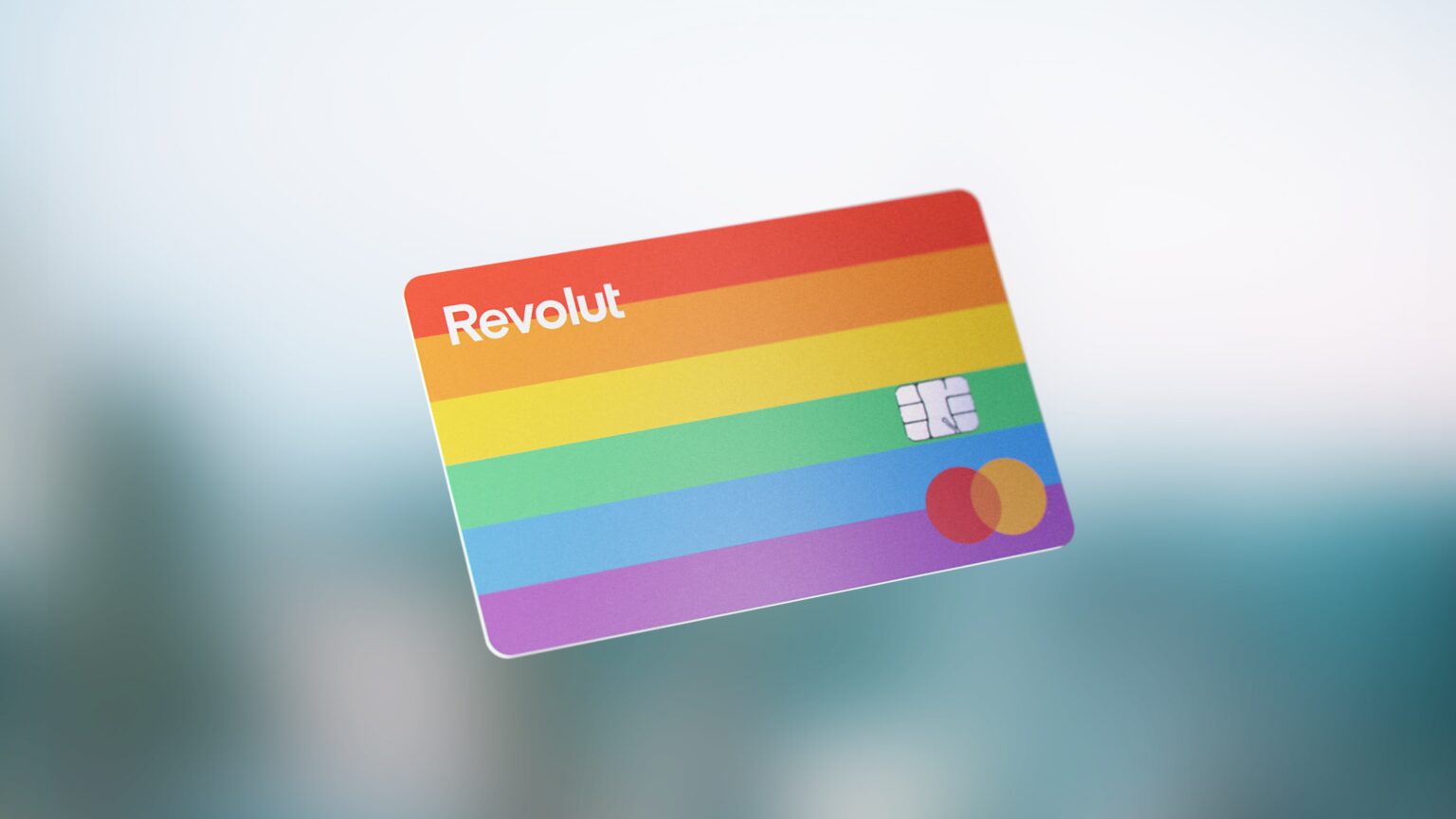
Revolut has today announced the launch of a new donations feature, allowing its five million customers to instantly round-up their card payments and donate the difference to charity partners, including ILGA-Europe.
Revolut customers can also donate via one-off, weekly or monthly recurring payments. Revolut charges no fees and takes no cut from donations. There is no minimum donation amount and the feature can be turned on and off by customers at any time.
ILGA-Europe, Save the Children and WWF have been chosen as the first three charity recipients due to their appeal to Revolut’s global user base, each of them seeking to tackle injustices internationally. Revolut’s association with each charity will be ongoing and the fintech will be adding additional charities throughout the year as it rolls out this exciting new feature out.
Nik Storonsky, Founder & CEO of Revolut said: “Supporting social causes is really important to us and many of our users. A lack of transparency and time consuming processes are issues commonly experienced when donating to charity. So at Revolut we’ve decided to help make charitable donations simple by building an easy and secure tool to enable our community to give back, even if it’s only a little spare change. We’re excited to see how far Donations can go and the impact we can make together.”
Anna Shepherd, Fundraising Manager, ILGA-Europe said: ““Across Europe and Central Asia we’re seeing stagnation and rollback on LGBTI equality. Now’s the time to invest in lasting and real change in the lives of LGBTI people. This is why we’re thrilled to partner with Revolut to offer seamless giving solutions, allowing users to be part of the LGBTI movement and this transformative change through their everyday transactions.
Find out more at www.revolut.com
ILGA-Europe announces fifth European Equality Gala
Next Thursday 27 June 2019 marks the European Equality Gala’s fifth birthday
The biggest fundraising party for the LGBTI movement in Europe and Central Asia will be held in a new venue at AREA 42 in Brussels, with all proceeds going directly towards ILGA-Europe’s work defending LGBTI rights across the region.
Gala guests can expect tunes spinning from DJ Azo, Syrian buffet from culinary NGO We Exist and free bubbly to kick off the evening.
The European Equality Raffle also see lucky winners claim prizes including:
- tickets to Cher’s Here We Go Again world tour, generously provided by Live Nation Belgium
- an original painting by New York City-based artist Andres Palacios
- an Amsterdam Pride weekend hotel package for two, generously provided by Meininger Hotels
- a package of coaching sessions to help you unlock and maximise your potential and performance, generously provided by Colloquium Coaching
“Across Europe and Central Asia, LGBTI activists are making change happen – from influencing policy-makers to providing services to the community from organising Prides to responding to crises,” says Executive Director Evelyne Paradis. “This is your chance to fuel the movement, to help us continue our crucial work and to meet just some of the many activists, advocators and political leaders shaping the future of LGBTI equality.”
The European Equality Gala has also received a number of flattering and inspiring comments from notable returning guests:
“My favourite EU event of the year, with everyone smiling for a good cause – what’s not to love?”
– Ryan Heath, Political Editor at POLITICO Europe
“For me, it’s an opportunity to connect with fellow supporters of equality.”
Catherine Naughton, Director of the European Disability Forum
“We continue to face backlash on LGBTI rights despite efforts for equality being made in Europe and across the world. This is why strong, well-resourced civil society is key to making equality, social justice and an inclusive Europe a reality for all.”
Piotr Sadowski, President of Social Platform
“Supporting human rights, freedom and diversity in the most glittery and excited night of the year in Brussels. What could be better?”
Terry Reintke, Member of the European Parliament
ILGA-Europe announce 2018 European Equality Gala and Auction

Fourth European Equality Gala moves to a new exciting venue in Brussels and introduces a special silent auction.
On 27 June ILGA-Europe will hold the fourth European Equality Gala, the biggest fundraising party for LGBTI movement in Europe and Central Asia. This year the event will be held in a new venue, the Centre for Fine Arts BOZAR in Brussels, and will once again feature entertainment, inspiring speeches and of course champagne. Profit from the gala event goes directly towards supporting the work of ILGA-Europe.
Tickets are no longer on sale.
Okeanide, the bearded queen from #Lithuwhateverania will be the host for the evening. And model and activist, Munroe Bergdorf (pictured above) will be will be performing a special guest DJ set.
The European Equality Auction is a brand new feature of the event. The silent auction is open to supporters of LGBTI equality everywhere, not just limited to gala guests. All profits of the auction go directly towards supporting the important work of ILGA-Europe and the LGBTI movement in Europe and Central Asia.
New ILGA-Europe report reveals reality of funding for LGBTI activism in Europe and Central Asia
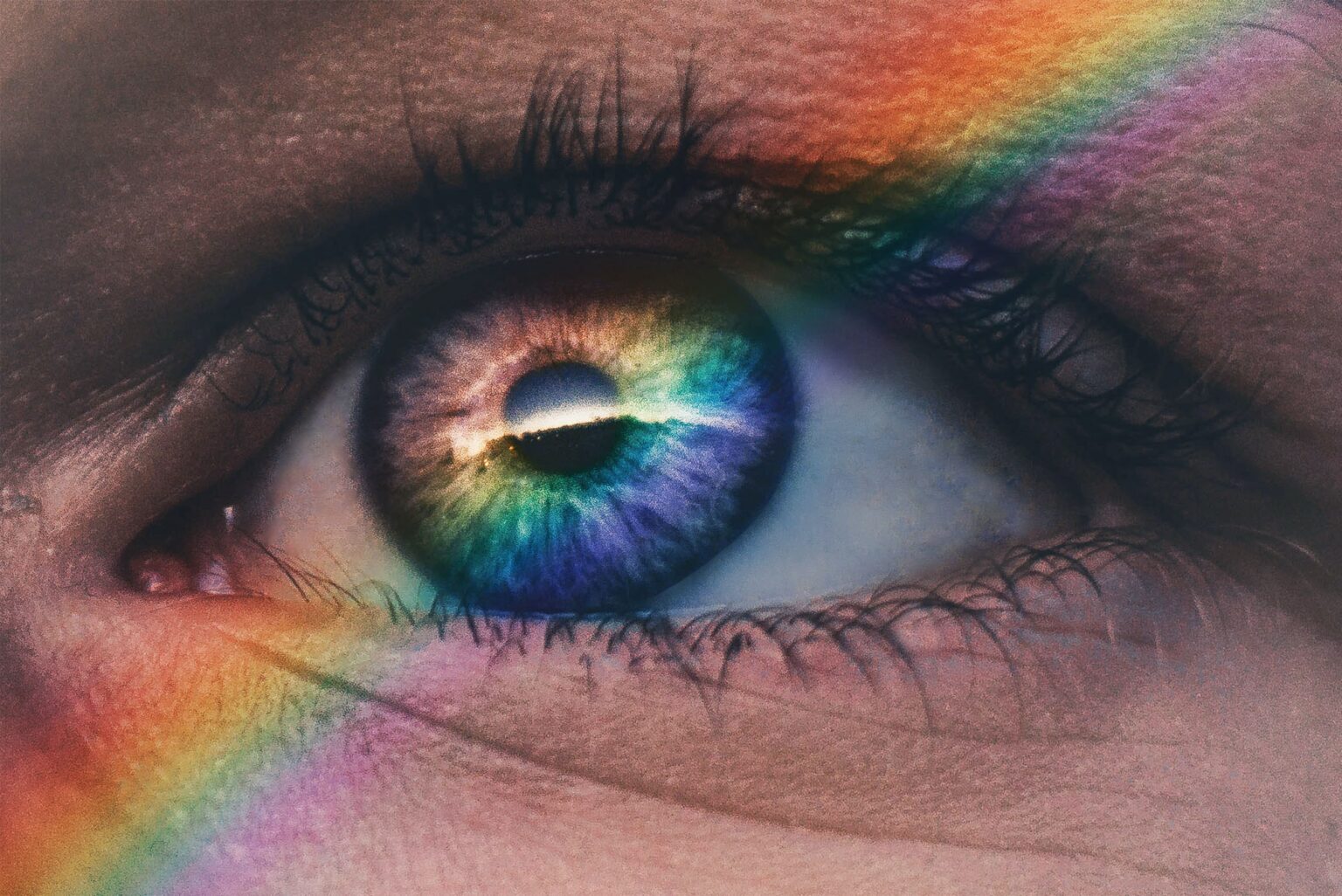
Today, ILGA-Europe are releasing the ‘Funding for LGBTI activism in Europe and Central Asia: priorities and access to resources’ report. The stories and direct experiences of LGBTI activists working throughout Europe and Central Asia are at the very core of this new publication.
What it is:
ILGA-Europe wanted to learn more about the LGBTI movements’ priorities in the rapidly-changing political, social and cultural environment we all find ourselves in. We were particularly curious to understand more about how your work is being resourced.
The Funding for LGBTI Activism report distils the survey responses of 287 LGBTI organisations into one publication, written by Erin Howe and Somjen Frazer from Strength in Numbers for ILGA-Europe.
Put simply, this report shows where funding is needed and signposts ways for funders to fund LGBTI activists in an ever-more strategic and sustainable way.
Why it matters:
- This report is crafted from the experiences of LGBTI activists – your experiences. Its contents deliver a hard dose of reality about what life on the frontline of activism is really like, and it will hopefully support your applications for more flexible, responsive funding.
- By pointing out the areas where needs don’t match the funds available, it will be the catalyst for honest, practical conversations between LGBTI activists and funders/those with the resources to support the movement’s work.
- It provides evidence of the sheer ingenuity of LGBTI activists – half of the organisations surveyed had no paid staff and are making change happen on a voluntary basis, and one third of the respondents don’t get funding from governments or foundations.
How to access the report:
Copies of the report will be available to the public from 15:00 CEST on Monday 30 April.
Please click here to access a copy of the report.
Want to know more?
Are you an LGBTI activist in Europe or Central Asia who works on getting funding to support your work? Join us on Thursday 3 May for a conversation about the report.
Registration closed
Don’t forget to join the discussion online with the hashtag #FundingforLGBTI
Are you #Giving4Equality this week?
Generous donors have pledged to match donations made to ILGA-Europe between 26 November and 2 December, giving supporters of LGBTI equality the rare opportunity to double their impact.
ILGA-Europe drive LGBTI equality in Europe and Central Asia. We connect, support and advocate for LGBTI organisations in 54 countries. Funds raised in the #Giving4Equality campaign will go towards ILGA-Europe’s work strengthening the LGBTI movement in the region and ensuring that voices of LGBTI communities are heard in European policy-making.
It Shows That People Care
The report provides a guidance for LGBTI organisations on fundraising from individuals in Europe and Central Asia.
ILGA-Europe and the Global Philanthropy Project have developed a fundraising guide, which includes an overview of fundraising, frequently asked questions, 10 case studies of LGBTI organisations raising money, and guidance and resources to start or improve your fundraising. The ‘Insiders’ briefing’ contains more strategic hands-on guidance targeted at LGBTI activists.











